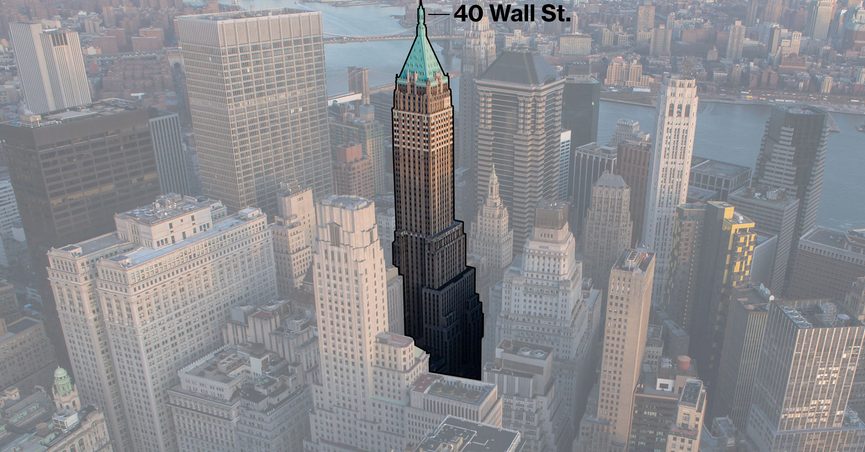唐纳德·特朗普谈到在 9/11 袭击之后有曼哈顿市中心最高的建筑物,但是他是否 “吹嘘” 是在观察者的眼中。
【宣称】
唐纳德·特朗普吹嘘说,他在曼哈顿市中心最高的建筑物 9/11 袭击摧毁了世界贸易中心后。
【结论】
混合物

【原文】
On 11 September 2001, as news outlets in New York, the United States, and around the world struggled to keep up with unfolding reports of that day’s terrorist attacks on the World Trade Center, newscasters from local television station WWOR spoke live on the air with Donald Trump about the event by telephone.
Trump described how he had witnessed the attack from an office window that looked directly onto the World Trade Center and answered questions from the newscasters about subjects such as whether he was taking any precautions to protect his own buildings and what the city would need to do to recover from the attacks:
Fifteen years later, as Trump was in the midst of a heated national campaign as the Republican Party’s presidential nominee, a clip of that interview was widely featured online along with derogatory statements asserting that it captured Trump’s “bragging” that the Trump Building (a 71-story skyscraper at 40 Wall Street) had become the “tallest in downtown Manhattan” once the WTC Towers fell:
What Donald Trump literally said that day was: “40 Wall street actually was the second-tallest building in downtown Manhattan, and it was actually before the World Trade Center the tallest, and and then when they built the World Trade Center it became known as the second-tallest, and now it’s the tallest And I just spoke to my people, and they said it’s the most unbelievable sight, it’s probably seven or eight blocks away from the World Trade Center, and yet Wall Street is littered with two feet of stone and brick and mortar and steel …”
So it is true that during the course of that interview, in response to a query about whether his own buildings had sustained any damage, Trump stated, in reference to the Trump Building, that “now it’s the tallest” [in downtown Manhattan]. Whether that remark constituted “bragging” is a matter of subjective interpretation, however.
Critics maintain that Trump’s referencing the relative height of 40 Wall Street in the immediate aftermath of the World Trade Center towers’ fall was completely gratuitous and irrelevant to the discussion, the hallmark of an egoist with no compunctions about using tragedy as an opportunity for self-promotion.
But in the context of the full interview, Trump’s remarks could perhaps be considered defensible.
First of all, the newscasters to whom Trump was speaking were appealing to their audience by repeatedly referring to his status in the New York real estate community, describing him as the “man behind lots of real estate in Manhattan” and a “visionary in New York real estate,” and they specifically asked him about the Trump Tower and the Trump Building, which they termed “one of the great tourist attractions in the world” and “one of the landmark buildings down in the financial district,” respectively. It was to be expected that he would respond to those lead-ins with at least a little bit of subtle swagger (which he expressed matter-of-factly rather than hyperbolically).
Second, Trump’s remark was made in response to questions about whether his buildings had sustained any damage and whether he was taking any precautions to protect them. In the chaos of that day, it wasn’t too much of a stretch to think that Trump was pondering whether the (as yet unknown) terrorists, having destroyed the two tallest buildings in lower Manhattan, might be coming after the next-tallest.
But then again, the office building at 70 Pine Street is listed as being 25 feet taller than 40 Wall Street (although it has four fewer floors), so perhaps Trump could be considered to have been “bragging” for claiming an honor that wasn’t actually his.
